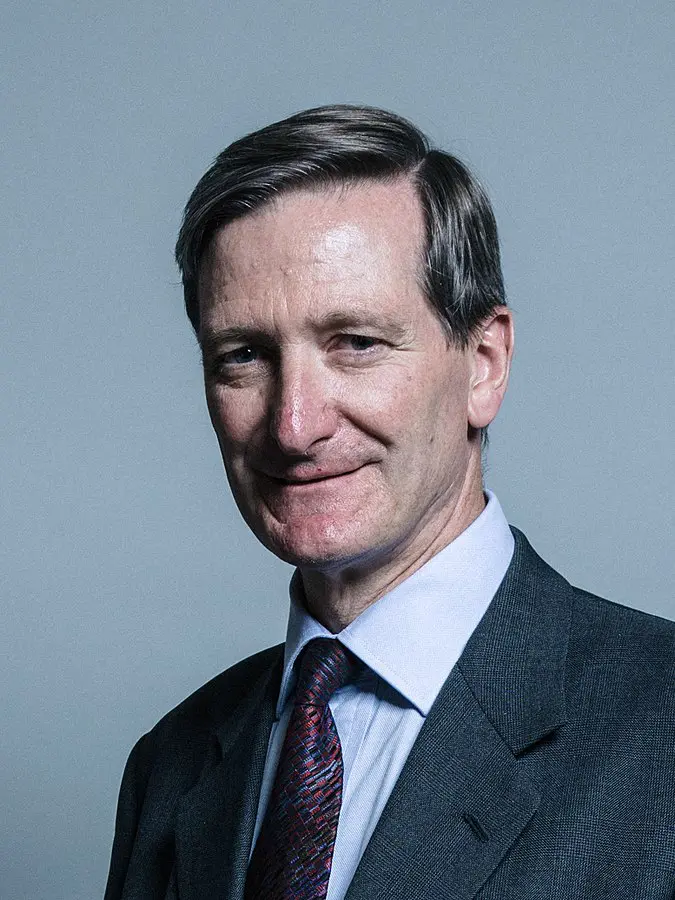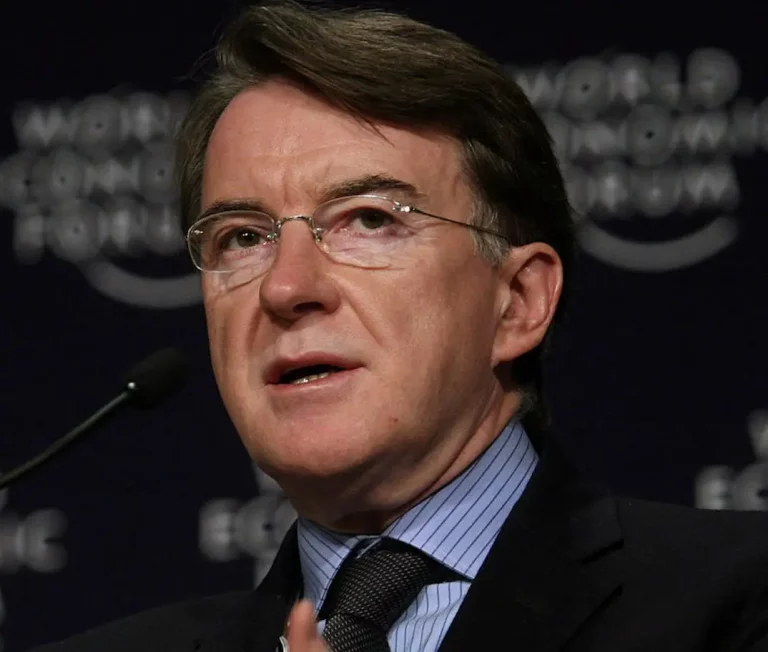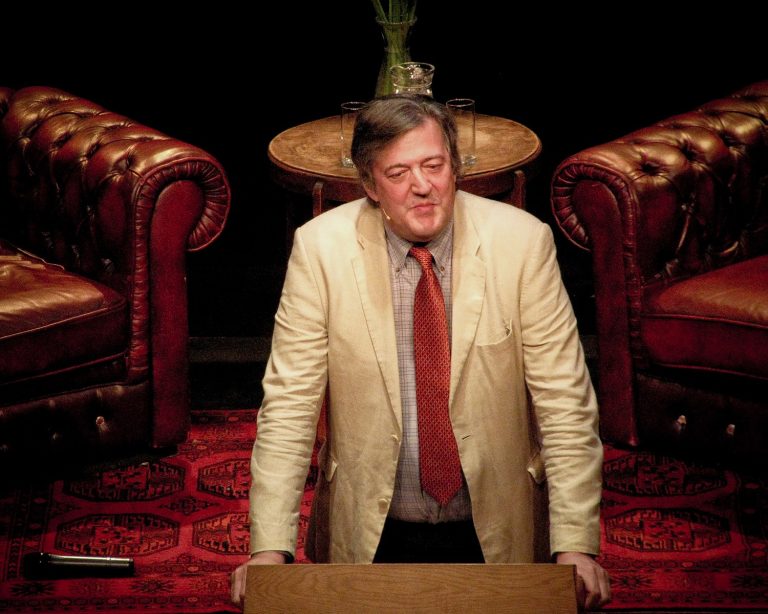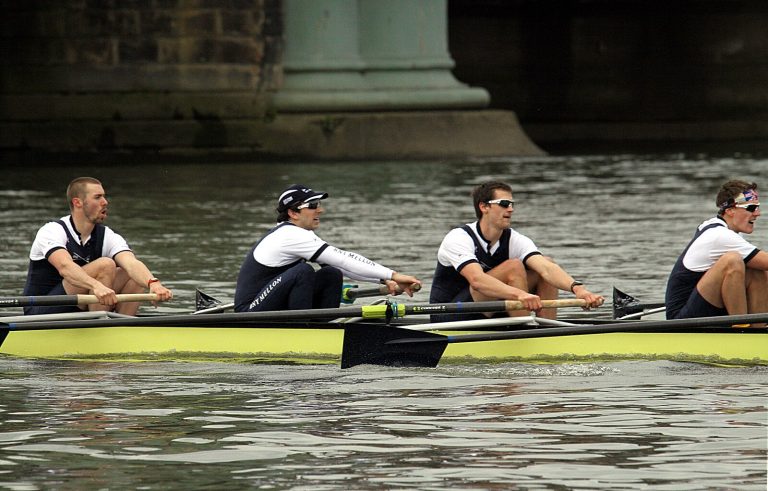Lord Peter Mandelson, a frontrunner to be the next Oxford Chancellor, was questioned over his ties to the late sexual abuser Jeffrey Epstein by the President of the Oxford Union during his latest appearance.
On 15 October 2024, the Union President asked Mandelson whether staying at Epstein’s house while Epstein was in prison would have “any bearing on [his] ability… to lend dignity to the university”.
Mandelson answered, “I don’t think so, no. I certainly regret ever meeting him in the first place. Um, had I known what he was and what was transpired [sic], I would have thought better of it.”
When asked whether he was aware of the allegations against Epstein at the time, Mandelson told the audience: “I’m not, I’m afraid, going to go into further detail about this. I’ve said publicly that I regret meeting him in the first place. Everything that needs to be known about him is now known. There’s nothing further I can add.”
Cherwell has reviewed Mandelson’s career and controversies during and since his time in government. This piece accompanies Cherwell’s profile on Mandelson from earlier this month.
In his career, Mandelson has served as European Trade Commissioner and British First Secretary of State. He served as Secretary of State for Trade and Industry, Northern Ireland Secretary, and Secretary of State for Business, Innovation and Skills. Perhaps most notably, he worked as Director of Campaigns and Communications for the Labour Party from 1985-90, when he earned the label ‘architect’ of New Labour. He has also been referred to as the ‘Prince of Darkness’ for his ‘ruthlessness’ and ‘media savvy’.
38 candidates are running to be the next Oxford Chancellor of the University of Oxford. Mandelson is one of the two most prominent candidates for Oxford Chancellor, alongside Lord William Hague, former Conservative foreign secretary and party leader. Other frontrunners are Lady Elish Angiolini, a lawyer and principal of St Hugh’s College, and Baroness Jan Royall, principal of Somerville College and former leader of the House of Lords.
The first round of Oxford Chancellor voting commences on 28 October 2024. It marks the first time the election for the Oxford Chancellor will be held online. Around 26,000 Oxford alumni have registered to vote in the election. 5,000 faculty and senior staff are also eligible. Five candidates from the first round of voting with continue to the second round of elections for the new Oxford Chancellor. The second round of elections for the Oxford Chancellor will commence in sixth week. Candidates for Oxford Chancellor will be eliminated one by one until one candidate receives more than 50 per cent of the vote. The next Oxford Chancellor will be announced during 7th week of Michaelmas Term, 24-30th November.
Links to Epstein
Mandelson had documented links with the late sexual abuser Jeffrey Epstein, according to the Financial Times. The same article, referencing a 2002 report by New York Magazine, stated that Mandelson attended a dinner party at Epstein’s townhouse in Manhattan in 2002 alongside Donald Trump and other figures.
Mandelson told Cherwell: “I did not attend any dinner party with Donald Trump”.
The Financial Times article noted that in 2005 Mandelson and Epstein went shopping together in the Caribbean. Last year, The Telegraph reported on a 2005/6 photograph that showed Mandelson and Epstein together while Mandelson tries on a belt in a St Barts fashion boutique.
In 2007, Mandelson and Epstein celebrated a birthday together in the latter’s Paris apartment. Epstein had been charged with soliciting a woman for prostitution in August 2006.
A JPMorgan report (2019) suggested that during June 2009, Mandelson stayed the weekend at Epstein’s Manhattan townhouse, according to the Financial Times. At the time, Epstein was in prison for soliciting prostitution from a minor, and Mandelson was the UK Business Secretary.
The Financial Times quoted an email exchange between Epstein and Staley on June 17 from the same JPMorgan report:“Peter will be staying at 71st over weekend, do you want to organize [sic] either you, or you and Jamie,, quiertly [sic],, up to you.”
Mandelson said to Cherwell that he did not “stay the weekend with Jeffrey Epstein in Manhattan in 2009.”
The Financial Times article reported on their relationship in the following years. Epstein and Mandelson continued to communicate by email.
In 2014 Mandelson signed up as a “founding citizen” of the TerraMar Project, a charitable group founded by Ghislaine Maxwell, which received financial backing from Epstein, according to a 2019 article in the Daily Mail. Mandelson told Cherwell he has “no recollection of this.”
There has been no suggestion of any wrongdoing by Mandelson.
A spokesman for Mandelson said: “Lord Mandelson very much regrets ever having been introduced to Epstein. This connection has been a matter of public record for some time. He never had any kind of professional or business relationship with Epstein in any form.”
Mandelson stated to Cherwell: “I have consistently expressed regret over my introduction to Mr. Epstein and extend my full sympathy to his victims. At the time, I had no personal knowledge of the extent of his abusive activities, which only became widely known following his 2008 conviction in Florida.”
Links to Deripaska
In 2008, while he was serving as EU trade commissioner, Mandelson was caught in a controversy over his links to Russian oligarch Oleg Deripaska.
In 2008, Mandelson attended a drinks party on Deripaska’s yacht off Corfu. Mandelson told Cherwell the gathering “included other public figures with their own reasons for attending.”
A month after this meeting, Mandelson advocated for the removal of trade restrictions which hindered the oligarch’s aluminium business, Rusal.
Mandelson told Cherwell: “Trade decisions, including those related to aluminium foil tariffs, were made collectively by the European Commission, not by individual Commissioners, based on evidence supplied by officials.”
Peter Mandelson had met Deripaska in Corfu, Moscow, and Davos. Mandelson confirmed at the time he had first met Deripaska in 2004.
In October 2008, the Conservative party called on Mandelson to disclose further details of his meetings with Deripaska.
Mandelson denied favouring the oligarch, according to an article in The Guardian. Mandelson told Cherwell: “Suggestions that I personally acted to benefit Mr. Oleg Deripaska are unfounded and risk distorting the professionalism required in my role.”
He told Sky News at the time: “All I would say about that is that [Deripaska] has never asked for any favours, I have never given him any favours, and that is what the European Commission in their examination of the issue has very firmly put on record.”
On 16 October 2008, David O’Sullivan, the Director General for Trade of the European Commission at the time, wrote a letter to the Sunday Times stating that he “would like to clarify that no such (personal) intervention took place”.
Links to Russia
Until June 2017, Mandelson was a director of the Russian company Sistema, a conglomerate which supplies Russian defence technologies. Mandelson, whose role paid him £200,000 per year, continued to work for Sistema after Putin’s annexation of Crimea in 2014. Sistema is a majority shareholder in defence technology company RTI, whose chairman, Evgeny Primakov, was a Putin ally, former Prime Minister and co-founder of the Fatherland All Russia Party.
In 2017, the Telegraph reported that Mandelson signed a letter to Vladimir Putin asking him to ensure that a legal dispute between Sistema and a state-owned Russian oil giant concerning the Russian government’s seizure of assets was “fair”.
Mandelson told Cherwell: “Communications involving Sistema were related to a legal defense against the Russian government’s unlawful seizure of assets. The political climate ultimately led to my departure from the board and I have not returned to Russia since.”
Global Counsel
Mandelson co-founded the advisory firm Global Counsel in 2010, serving as director of the company until June 2024.
The company is currently under investigation by the Office of the Registrar for Consultant Lobbyists for “potentially inaccurate quarterly information returns.”
The investigation follows an article by Democracy for Sale, which revealed last month that the group had failed to disclose lobbying on behalf of Qatar. The article reported that while Mandelson was still president of the Global Counsel, the group lobbied UK government ministers, including then investment minister Lord Dominic Johnson, to influence UK trade policy on behalf of the state-backed Qatar Free Zones Authority, without registering the client.
The Guardian reported that Mandelson had brokered introductions between Uber and powerful representatives of business and government, helping the company access Russian oligarchs who have since been placed under sanctions by the British government in the wake of the war in Ukraine.
He appeared to have been an adviser for Uber Technologies, Inc. in Russia between 2015 and 2016, according to documents reported on by The Guardian.
The same article reported that the relationship generated close to £200,000 in fees for Global Counsel.
Mandelson told Cherwell: “I had no personal involvement in matters between Uber and individuals in Russia, and the reports about Global Counsel’s role referenced in your outline are both tendentious and unsubstantiated. I neither had then, nor do I now have, any personal knowledge of or connections with Russian billionaires.”
Links to other figures
In 2004, The Guardian reported that Mandelson, the then EU trade commissioner, was linked to Lebanese businessman Ely Calil, the alleged financier of a failed coup in Equatorial Guinea. The Spectator reported that in an intelligence report delivered to the British government, Calil said that “Mandelson assured him that he would get no problems from the British government side” and invited Calil to see him again if Calil “need[ed] something done.” Mandelson had rented a flat in Holland Park from Ely Calil in 1999. Mandelson told Cherwell: “My short-term flat rental from Mr. Ely Calil in 1999 was strictly a landlord-tenant arrangement. Any suggestion of a connection involving a planned coup is entirely baseless.”
Mandelson said in a statement at the time: “I have never undertaken to deal with it in relation to the British government in any way, shape or form” and denied reports that he faced questioning over the issue.
In 2001, while serving as an MP from Hartlepool, Mandelson met the Syrian dictator Bashar al-Assad, at Assad’s home. Mandelson wrote in a piece for the Independent after the trip that “politics had nothing to do with [his] plans” in travelling to Syria. He subsequently described Assad as “a decent man doing a difficult job” and “an intelligent and cultured individual”.
Mandelson stated to Cherwell: “Meetings with figures like Bashar Al Assad, soon after he became Syria’s leader… were part of my public responsibilities and aligned with the diplomatic expectations of my role [as an MP]”.
Cherwell contacted Oxford University, St Catherine’s College, The Oxford Union and the Oxford Labour Society with requests for comment.











